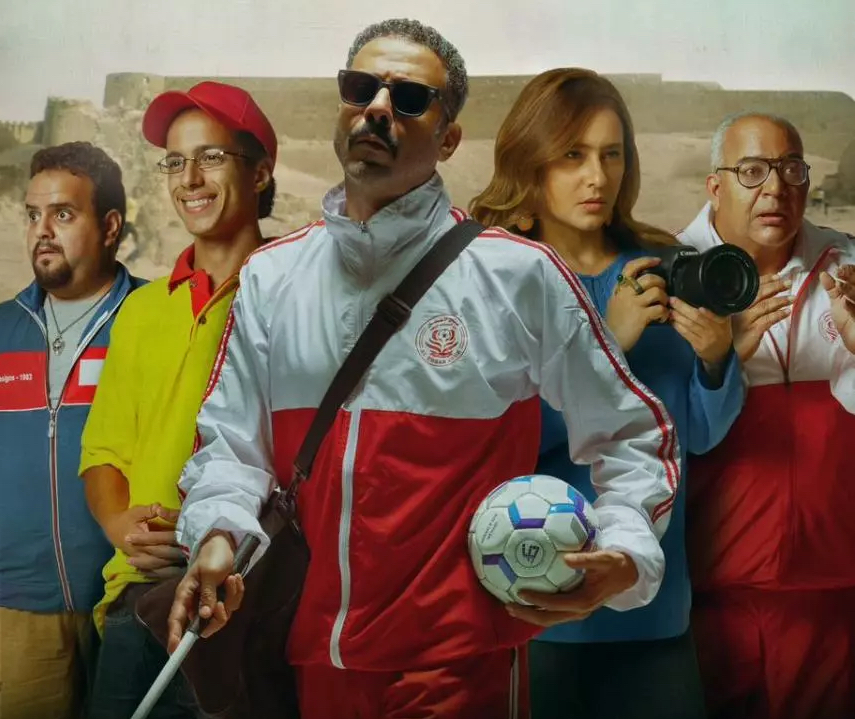Voy! Voy! Voy! had one of its Middle Eastern premieres at this year’s edition of the Marrakesh International Film Festival. The film, which is chosen by Egypt in the Oscars competition for best foreign film, follows the true story of Hassan played by Mohamed Farrag, a security guard who lives a poor life with his mother. Seeking to travel outside of Egypt, Hassan fakes his visual impairment and joins the blind football team in one of the World Cup tournaments in Europe in hopes of bright opportunities aboard.
Farrag spoke to Arabian Moda about his journey with his film and why he believes that cinema will live forever.
AM: How do you creatively prepare yourself before filming a true story?
MF: I love true stories as a human being, and as an actor. So, can you imagine the level of excitement that I have when I play a role based on a real-life character? It has a very huge value for me. But I don't think there is a lot of differences with acting in fiction. Because it's finally you; you make the movie, you have the equipment, the characters, the storylines, it’s almost the same with a lot of more passion.
AM: Did you get to meet the hero in real life? And what were some challenges on set?
MF: Unfortunately, not. The story dates back to 2013, but I read the script and fell in love with every aspect of it. As an actor I love challenges, I don't like the easy way out. Which is why I said yes to the project after the very first read. The character is a very attractive one to play. Blind people are either born the way they are or lose their sight because of an accident. Hassan is neither of those, he can actually see but acts like he doesn’t. Can you imagine that I claim that I don't see you and you believe me? My second challenge is that I am the main actor, which means that I carry the responsibility of the movie on my shoulders. So, I kept asking myself what if people don’t like it? What if I don’t convince them?
AM: Some critics linked the overall storyline to immigration. Do you feel that the Middle Eastern youth is willing to do anything to leave their country?
MF: My point of view is that it could happen anywhere in the world and not just in the Arab region. It’s like if I have a dream and I want to achieve it no matter what. Maybe I'm Egyptian, maybe I'm Lebanese, Brazilian or whatever. It’s more about persistence and finding the means to achieve a goal.
AM: Let’s talk about how the film was chosen to represent Egypt in The Oscars competition for Best Foreign Film…
MF: It’s a fantastic feeling. We were attending the film’s premiere in Dubai and I got the news from the director Omar Hilal just before heading to an interview. I couldn’t believe it at first, it took me some time, I was so emotional. And just like that, 23 years of hard work flashed before my eyes.
AM: What makes Egyptian cinema different from the competition?
MF: We’ve been doing cinema for a very long time now. It feels like our talents are embedded everywhere in the industry whether it’s actors, musicians, poets, script-writers and so many more.
AM: What’s next for you?
MF: I just finished filming five days ago in Egypt. It’s a new series that is available as of now on streaming platforms. I also have an upcoming TV series for Netflix.
AM: And speaking of streaming services, what is the role of cinema in our online world?
MF: Cinema is cinema, there's nothing like it. Streaming platforms are bringing benefits to the industry, they help more talents and appeal to a wider audience. But regardless, cinema is here to stay.


